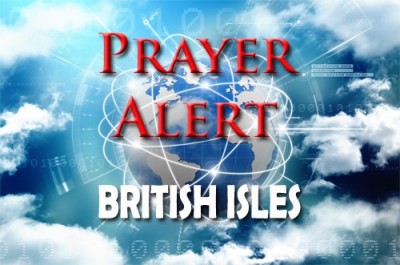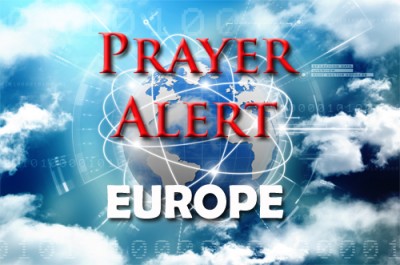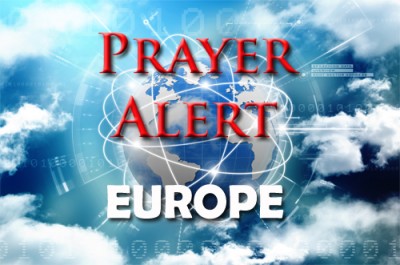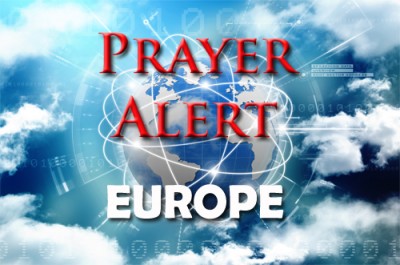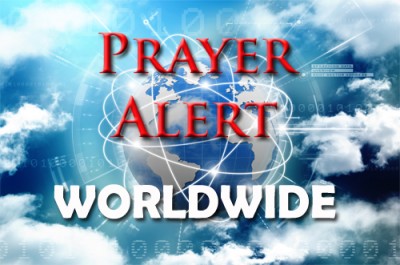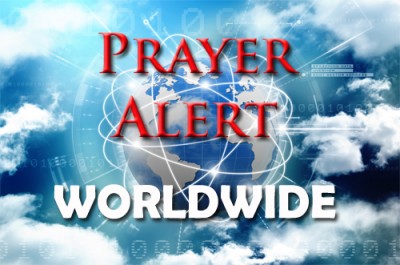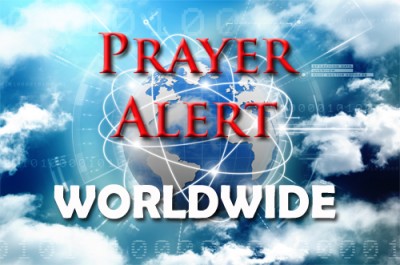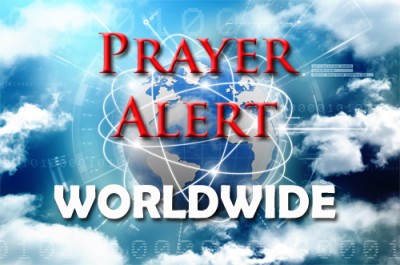Churches, prayer and technology
19 Mar 2020A national day of prayer and action for the global pandemic of coronavirus has been organised for this Sunday. The organisers are Archbishop Justin Welby, Cardinal Vincent Nichols, Revd Dr Hugh Osgood (the Free Churches Moderator), Archbishop Angaelos of London (the Orthodox Church) and Pastor Agu Irukwu, the Pentecostal representative. They write, ‘This Mothering Sunday we are calling all churches to a national day of prayer and action. At this time, when so many are fearful and there is great uncertainty, we are reminded of our dependence on our loving Heavenly Father and the future that he holds. At 7pm this Sunday, light a candle of hope in the windows of your homes as a visible symbol of the light of life, Jesus Christ, our source and hope in prayer.’ Also churches are looking to livestream services. The Baptist Union hosted an online prayer broadcast, with 2,300 joining in, and has a number of resources online.
Europe: life in lockdown
19 Mar 2020Over 250 million Europeans are in full or partial lockdown as Belgium, Germany, Italy, Spain and France have closed schools and all non-essential shops and ordered people to stay at home. Italians in lockdown sing together from their balconies to boost morale and put candles in their windows in support of emergency workers, pharmacists, doctors, and all those putting their lives at risk. Pray for God’s protection over all these people. Italian children are making signs that say, ‘We will overcome this’. In France and Italy only one person from each household can go shopping. May God convict residents to comply with the government rules regardless of inconvenience. Intensive care in some regional care systems are ‘close to collapse’, despite efforts to free up hospital beds. Outside China, two-thirds of all cases and three-quarters of all deaths are in Europe. Europe has now recorded 600 more deaths than China.
Croatia: faith mixed with corruption
19 Mar 2020Many Croatians inhabit the land of the Dalmatian coast which in the 20th century became part of Yugoslavia. The region of Dalmatia is mentioned in the Bible, when Titus left Paul to go there. Croats had access to the Gospel very quickly, and different orders of Roman Catholicism worked among the people. For centuries Croats considered themselves Roman Catholic. Croatia nurtures religious freedom: there are Roman Catholic cathedrals and churches, Orthodox churches, Protestant churches, Islamic mosques, and other minority religions. However, the biggest problem is corruption. ‘Giving favours’, as it is called, is the way of thinking for many. Unfortunately, they do not consider it sinful or recognise the consequences of it for society in general.
Europe: coronavirus and Christian conferences
19 Mar 2020The Willow Creek 2020 Leadership Conference in Germany started on 27 February with 7,400 attendees, but ended abruptly after one of the speakers contracted coronavirus. The speaker was never present during the event, but was involved with the preparations. Three people who had contact with him have since tested positive for coronavirus. Also an EU prayer meeting due to take place in Zagreb was cancelled due to coronavirus. Pray for the organisers of the many planned 2020 gatherings to make wise decisions due to health and safety issues. Pray also for the plight of homeless refugees as borders and societies close down. See also
Israel’s government has approved emergency regulations to enable the Shin Bet to perform mass surveillance of phones belonging to Israelis who contracted COVID-19. This is not to monitor quarantined people, but to track the movements of those found to be coronavirus carriers, to see with whom they interacted in the 14 days before they were diagnosed. Those who were contacted will receive SMS messages instructing them to enter home quarantine. Netanyahu announced the use of these digital counterterrorism measures, as one of several drastic steps to curb the spread of the virus that causes COVID-19. He acknowledged that the digital measures might interfere with people’s privacy, but he argued that Taiwan has successfully used similar means in order to stop the coronavirus spread. Public criticism and warnings by human rights groups mean that authorities must limit these measures to only thirty days.
Pray for the suffering
19 Mar 2020Pray for China, Italy, Spain, South Korea, and Iran, where thousands are suffering the loss of loved ones and millions suffer isolation from the outside world. Thank God for all the healthcare workers dedicated to care for the sick. May our political leaders not suffer the stress that can invade all those in decision-making positions over containing contamination. May they have Godly wisdom and a calm approach to all decisions. Many are suffering the fear of ‘going without’, causing items to disappear from shops’ shelves. Pray for this fear to be overridden with a spirit of sharing and concern for others. We are surrounded by negative news and social media. Without dismissing the seriousness of the coronavirus outbreak, let us remember to trust in the Lord with all our heart and not lean on our own understanding (Proverbs 3:5). For ten further prayer needs, click the ‘More’ button.
Iran: good and bad news
19 Mar 2020Iran has temporarily released tens of thousands of prisoners in recent weeks to stop the spread of coronavirus. Among these prisoners is British-Iranian charity worker Nazanin Zaghari-Ratcliffe She will be required to wear an ankle tag and remain within 300 metres of her parents' home. ‘The issue now is to make it permanent’, her husband Richard said. Pray for this to be the beginning of a permanent release for her. Meanwhile Iran has recorded the highest toll of deaths outside China and Italy. WHO said that 15% of Iran’s deaths were aged under 40. This is unprecedented, as across the world death rate the under 50’s is well below 1%. An Iranian pulmonologist said, ‘Realistically, at this point, the reported sick cases are 1 million.’ As a measure of Iran's desperation, it has requested a $5billion emergency loan from the International Monetary Fund - the first time they have sought western help for sixty years. See
Nigeria: displaced Christians refused aid
19 Mar 2020Among two million people who fled Islamic extremist violence in northern Nigeria are hundreds being denied help because they are Christians. Displaced Muslims receive government-built homes, land, and financial support for resettlement, but 347 Christians are denied help because of their faith. ‘We cannot watch them die because they are unwilling to turn to Islam for support. We want to start something, no matter how small’, said a Christian leader of a small organisation (name withheld for security reasons). He wants to free land on the organisation’s properties to build homes for Christian converts denied entry into camps for the displaced. Many are left to die on their own, as no food or shelter is made available to them. The leader said, ‘We had tried within our little resources to help these ones, but the rejected people without external help to survive are too many.’ The organisation is now seeking support and funding.
